 Nordico Stadtmuseum Linz (Web)
Nordico Stadtmuseum Linz (Web)
Zeit: bis 28.05.23
Ort: Simon-Wiesenthal-Platz 1, 4020 Linz
Feminismus! Ein Wort, über das hitzig diskutiert, das ignoriert, verdrängt und verteidigt wird – kurz: ein Begriff, der polarisiert. Feminismus ist sowohl ein Denkangebot, eine Vielfalt an Theoretisierungen, eine politische Bewegung, ein Paket an Forderungen und Praxen, als auch eine Haltung, eine Lebensform, viele Lebensformen. Auf den Punkt gebracht: den einen Feminismus gibt es nicht. Diese Ausstellung ist ein Angebot, sich mit all diesen Themen auseinanderzusetzen, sich einzufühlen, neue Perspektiven einzunehmen, aber auch sich auszudrücken, in Dialog zu gehen, Fragen zu stellen, Antworten zu finden und neue Fragen zu stellen.
Das Museum öffnet sich, um „Feminismen“ in ihrer Vielfalt zu zeigen: zu Ausstellungsbeginn bleiben einzelne Wandbereiche erstmals leer. Bis zum Ende der Ausstellung können und sollen diese Leerstellen durch einen Prozess gemeinsam mit dem Publikum sowie mit eingeladenen Aktivist*innen befüllt werden. Dabei kann es passieren, dass die ursprüngliche Museumserzählung in Frage gestellt oder unterbrochen wird. So fließen alle paar Wochen die Ergebnisse der fünf geplanten Arbeitsgruppentreffen ein – auch im Sinne einer möglichen Dekonstruktion.
In sechs Themenräumen führen zeitgenössische künstlerische Positionen gemeinsam mit historischen Artefakten durch einen lebendigen Diskurs. Es geht um österreichische Geschichte mit Schwerpunkt Linz, um Fakten, Gefühle, Erfahrungen, subjektive Wirklichkeiten und aktuelle Haltungen. Die Schau versteht sich auch als Vorschlag, anderen Perspektiven mit Neugier zu begegnen und fixe Zuschreibungen zu hinterfragen.
Idee & Kuration: Klaudia Kreslehner
Partizipatives Konzept: Klaudia Kreslehner, Karin Schneider
Dialogreihe Gesprächsstoff & Linz Büro im Wandel: Gabriele Kainberger
Texte: Martina Gugglberger (JKU), Klaudia Kreslehner, Karin Schneider
Gestaltung: MOOI Design (Letitia Lehner, Sarah Feilmayr)

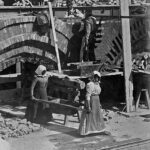 International Conference of Labour and Social History (ITH)
International Conference of Labour and Social History (ITH) 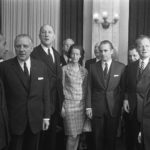 Institut für Zeitgeschichte der Universität Wien, Reihe „INTERAKTIONEN“
Institut für Zeitgeschichte der Universität Wien, Reihe „INTERAKTIONEN“ 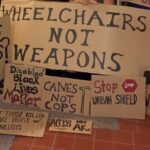 RACAR: Journal of the Universities Art Association of Canada
RACAR: Journal of the Universities Art Association of Canada  Arbeitskreis Ideengeschichte der dt. Sektion der Internationalen Vereinigung für Rechts- und Sozialphilosophie (IVR)
Arbeitskreis Ideengeschichte der dt. Sektion der Internationalen Vereinigung für Rechts- und Sozialphilosophie (IVR)  i.d.a.-Dachverband: Digitales Deutsches Frauenarchiv (DDF)
i.d.a.-Dachverband: Digitales Deutsches Frauenarchiv (DDF) 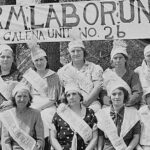 Rural Women’s Studies Association (RWSA): Triennial Conference
Rural Women’s Studies Association (RWSA): Triennial Conference 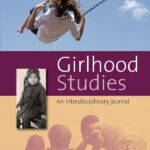 GIRLHOOD STUDIES. An Interdisciplinary Journal
GIRLHOOD STUDIES. An Interdisciplinary Journal